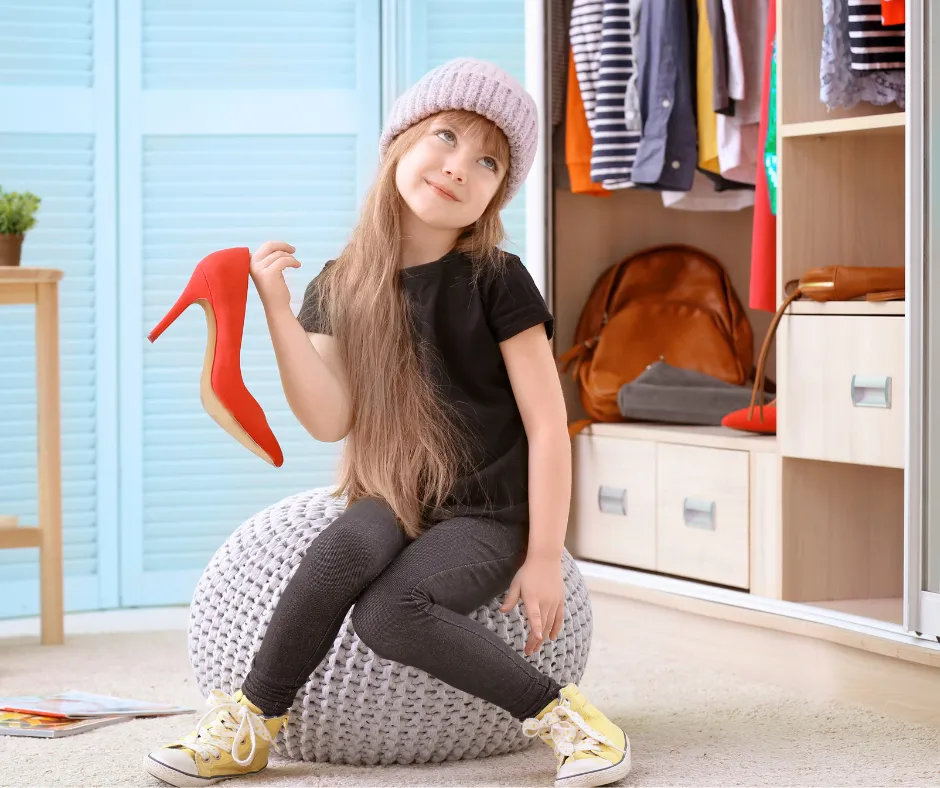From Chaos to Cooperation: The Secret to Raising a Toddler Who Listens Without Constant Repetition
Parenting toddlers often feels like trying to decode a puzzle with shifting pieces. One moment, they’re your little angel, and the next, you’re dealing with a meltdown that feels impossible to prevent. But what if you could unlock a secret that naturally brings out your toddler’s best behavior?

Here it is: Children don’t do what we say, or even what we do—they do what we expect.
This simple yet profound truth has the power to transform your parenting. Expect the best from your child, communicate those expectations clearly, and you’ll start seeing the behavior you want—without exhausting power struggles or endless repetition.The Problem: Repeating Instructions Without Results
How many times have you found yourself saying the same thing over and over?
“Don’t hit your sister.”
“Clean up your toys.”
“Stop whining.”
It’s exhausting, and worse—it rarely works. Here’s the harsh truth: When you repeat yourself, your words lose meaning. To your toddler, repetition signals doubt. It tells them, “Mom or Dad doesn’t believe I would actually do this, so they keep reminding me.”
Toddlers are wired to pick up on our expectations—not just what we say, but what we truly believe. When we repeat instructions without confidence, we’re unintentionally teaching our children that we don’t expect them to succeed.
Mindset: Your Toddler Wants to Please You
The good news? On a DNA level, your toddler is wired to want to please you. Their survival instinct drives them to stay connected to their caregivers. Deep down, they crave your approval and connection—it’s how they’re built.
This instinct is a gift. It means that when you approach your toddler with confidence and clear expectations, they naturally want to rise to meet them.

But here’s the catch:
Confidence is silent. Repetition undermines it.
If it’s not news, don’t repeat it.
Actions: Expect the Best to Bring Out the Best
1. State Your Expectations Clearly—Once
When you need your toddler to do something, communicate it calmly and confidently. Use a firm, warm tone and make eye contact. Then stop.
For example:
Instead of repeating, “Put on your shoes!” four times, try: “It’s time to put on your shoes. I’ll wait here while you do it.”
If they hesitate, resist the urge to nag. Instead, stay calm and let them process your expectations. Repetition implies doubt; silence communicates belief.
2. Act with Confidence, Not Anger
When toddlers sense that you doubt their ability to follow through, they may resist even more. Confidence in your body language, tone, and attitude tells them, “I know you can do this.”
Imagine these two scenarios:
A parent who says, “How many times do I have to tell you? Put on your shoes!” while frowning and tapping a foot.
A parent who says, “Shoes on, please… with confidence Which one inspires cooperation?
Toddlers mirror your energy. Expectation and confidence go hand in hand—when you show belief in their ability to succeed, they’re far more likely to meet your expectations.

Transforming Your Home Atmosphere with Confidence
When you embrace the mindset of expecting the best and eliminating unnecessary repetition, the atmosphere in your home begins to shift. You’ll notice:
-Fewer power struggles: Your toddler feels trusted and respected, reducing resistance.
-Improved cooperation: Clear, confident communication makes it easier for your child to understand and follow through.
-Greater peace: You’ll spend less time repeating yourself and more time enjoying the moments that matter.
The Rule of "Don’t repeat unless it’s news"
Repetition can feel comforting to parents—it’s a way of trying to control the situation. But in your toddler’s world, it sends the wrong message. Trust your toddler to process your expectations if you’ve already communicated them.
If they don’t follow through immediately, it’s okay to pause, stay calm, and guide them with your actions rather than repeating your words.
Your Toddler Code™ Takeaway
Children rise to the expectations we set, but those expectations must be paired with unshakable confidence and supportive action if necessary. By eliminating unnecessary repetition and focusing on clear, positive communication, you’re building the foundation for a strong, connected family dynamic.
Start small:
Step one - Choose one instruction to state clearly and confidently without repeating it.
Step two - Hold firm and with confidence and never repeat what is not “news” even in the face of initial defiance...
Step three - Take calm, confident action if needed (ie you put their shoes on for them.) The difference here is that you let them have their emotions (no mommy, I won’t!) while staying above the fray.
Your toddler is wired to please you. By expecting the best and showing confidence in their abilities, you’re not just shaping better behavior—you’re teaching them to believe in themselves, strengthening your connection, and creating a harmonious home.
Parenting a toddler doesn’t have to feel like a constant battle of wills or a game of repeating yourself endlessly. The truth is, your toddler is wired to want to please you, and with the right mindset, clear expectations, and unwavering confidence, you can unlock their best behavior naturally.
What you’ve just learned here is only the beginning. In The Toddler Code™, I dive even deeper into the strategies that make parenting feel natural, joyful, and guilt-free. From understanding your child’s innate need to connect to mastering the art of expectation and communication, I give you the tools to transform your parenting—and your family life.

Imagine a home where you don’t have to nag, where power struggles are rare, and where you and your toddler work as a team with ease.
That’s not a dream—it’s what I help parents achieve every day.If this resonates with you and you’re ready to crack the code to your toddler’s best behavior, let’s talk. Book a free call with me today, and I’ll show you how my proven strategies can help you create the peaceful, cooperative family life you’ve always wanted.
Are you ready to take the next step? 😊